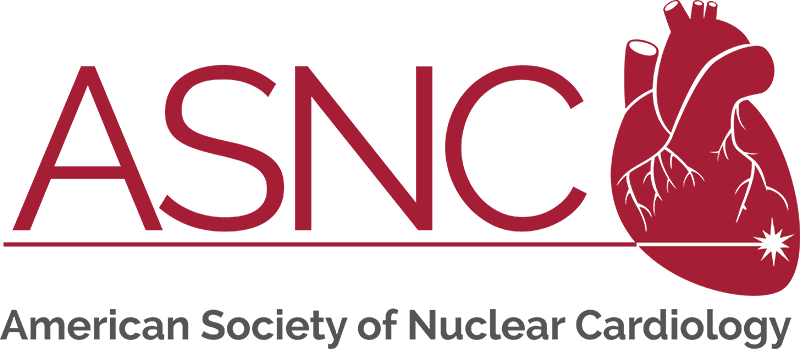Why Cardiac PET | Technical Requirements
Interpretation & Reporting | Billing & Advocacy
Education & Training Overview
Deriving the benefits of cardiac PET requires all members of the nuclear cardiology community to have a thorough understanding of cardiac PET. It is critical to understand the advantages and differences of cardiac PET from cardiac SPECT, as well as the added clinical value of myocardial blood flow, in the diagnosis and prognosis of patients with coronary artery and other cardiovascular diseases.
You will find a variety of education and training opportunities offered by ASNC geared toward every member of your lab.
Workshops
Specific dates will be announced.
- Cardiac PET Intensive Virtual Workshop—May 2–3, 2026
The Intensive Workshop is focused on those who are interested in starting a cardiac PET service or who have recently started doing cardiac PET. There is a series of pre-recorded lectures to prepare you for the workshop, which runs 2 days and provides the opportunity to read and interpret approximately 60 PET cases with leading experts addressing the basics of PET myocardial perfusion imaging with and without myocardial blood flow, identifying and troubleshooting artifacts and metabolic imaging. Each intensive workshop offers a limited number of seats in order to accommodate small breakout groups to enhance learning and interaction. CME credit available. - Cardiac PET Technologist Virtual Workshop—February 21–22, 2026
The Cardiac PET Technologist Workshop is a 2-day, 9-hour focused program led by expert technologists, physicists, and physicians who share their best practices and hands-on-learning experiences to assist technologists starting a PET lab and provide guidance to those already running a PET lab on everyday issues and challenges. CE credit available. - Hybrid Imaging Virtual Workshop—February 6–8, 2026
The Hybrid Imaging Workshop provides participants the opportunity to review 250 studies with expert radiologists and cardiologists. Participants, in small breakout groups, learn how to systematically read CT attenuation correction scans acquired in conjunction with perfusion imaging and identify cardiac non-coronary, vascular, lungs, mediastinum, upper abdomen, bones, and miscellaneous incidental findings. CME credit available. - Cardiac PET Advanced Workshop—December 5–6, 2026
The Advanced Workshop is the next level of PET learning with in-depth discussions of challenging cases frequently seen in clinical practice. The workshop runs for 2 days with 4-hr sessions each day and is geared to those already doing cardiac PET or who have attended 1 or more Intensive workshops. Cases presented address additional value of calcium scoring, CT incidental findings, viability, sarcoid, and infection PET imaging. CME credit available. - ICNC PET Workshop (in association with ICNC 2026)—May 16, 2026; 2:00pm–5:00pm CET | Registration details to come.
This hands-on, in-person session, led by Dr. Mouaz Al-Mallah, offers participants use of workstation-based software to read cases with experts. Choose from sessions on PET MPI, F-18 blood flow and perfusion, sarcoidosis/amyloid/inflammation/infection, and CZT MPI.
PET Cases
Each month a new cardiac PET case is posted on asnc.org. These cases address a variety of interesting clinical scenarios and provide an excellent resource for clinical practice. The presentation provides all the necessary information to allow viewers to follow along with how the case was interpreted. Prior to the case posting, a question with selected images regarding next steps or the potential diagnosis is posted on X (Twitter). Answers are shared the following week.
Information Statement and Practice Guideline
-
Laboratory considerations on the use of F-18 myocardial perfusion imaging radiotracers: An Information Statement from the American Society of Nuclear Cardiology. Sanghani R, deKemp R, Horgan S, Al-Mallah M, Bateman T, Case J, et al. J Nucl Cardiol. 2025; 48(102230).
-
SNMMI/EANM/ASNC/ACNM Procedure standard/practice guideline for F-18 flurpiridaz PET myocardial perfusion imaging and blood flow quantitation. Packard RRS, Maddahi J, Pelletier-Galarneau M, Al-Mallah MH, Coelho M, Dorbala S, et al. J Nucl Cardiol. 2025 Sep 18 (102473).
Videos and Monographs—Considerations in Starting a PET Lab
Supported by GE HealthCare
Monograph
- Ready for PET | Considerations for Starting a PET Lab by Rupa Sanghani, MD, FASNC; James Case, PhD, MASCN; Timmothy Dunn, CNMT; Gary V. Heller, MD, PhD, MASNC; and Jeffrey Rosenblatt, MD, FASNC
Video
- Ready for PET: Training and Education by Gary V. Heller, MD, PhD, MASNC and James Case, PhD, MASNC
Technologist Education
Stress Testing: What Every Technologist Needs to Know
This series of posters provides technologists with common PET-CT myocardial perfusion imaging artifacts, performing myocardial blow flow measurements and coronary artery calcium scoring, as well as important tips related to methods of stress (SPECT and PET), high-risk features, and ECG Findings.
- Common Artifacts with Cardiac PET-CT Myocardial Perfusion Imaging (2025) — developed by A. Sami Abuzaid, MD; James Case, PhD; and Erin Stevens, CNMT, NCT
- Myocardial Blood Flow Measurement with Positron Emission Tomography Myocardial Perfusion Imaging (2024) — developed by Maria Khalil, MD; Erin Stevens, CNMT, NCT; and Michael T. Osborne, MD
- Coronary Artery Calcium Scans (2024) — developed by Talal Alnabelsi, MD
- Methods of Stress (2023) — developed by Sanjay Divakaran, MD
- High Risk Features (2023) — developed by Ahmed Abuzaid, MD and Mark Samolich, CNMT
- ECG Findings (2023) — developed by Jad Ballout, MD and Talal Alnabelsi, MD
- Methods of Stress for PET Perfusion Imaging (2023) — developed by Iqra Qamar, MBBS and Michael T. Osborne, MD
Patient Instructions—Cardiac PET Stress Test
Download and print

